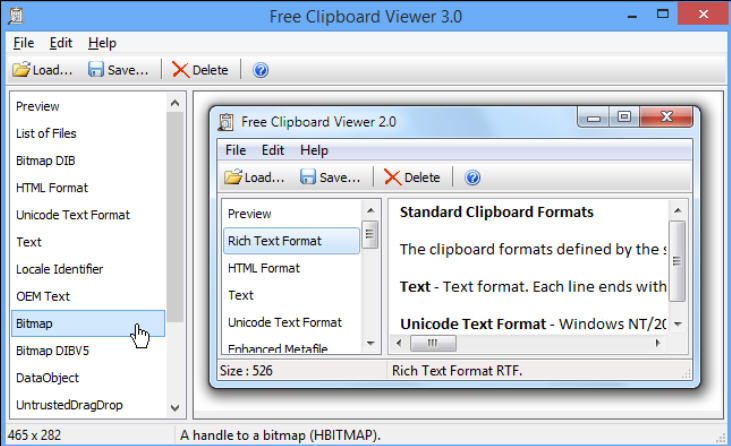What is your PC's clipboard giving away about you?

The Windows clipboard is very convenient, but it does come with some privacy and security risks.
Most dangers are clear. Copy some lengthy password to the clipboard, forget about it, and the text may be viewed by anyone with access to your PC. (Until you copy something else there, anyway.)
Other smaller issues are less obvious, because the clipboard doesn’t only hold the text, images or files you see -- there are other details, too.
Free Clipboard Viewer is a portable tool for Windows 2000+ which makes it easy to see how this works. Download, unzip and run it to get started.
Launch Internet Explorer, select some formatted text on a web page and copy it to the clipboard. Switch back to Free Clipboard Viewer and you’ll find the same text is held in various formats. "Text" is plain text, "Rich Text Format" is a preview of an RTF version, "HTML Format" is the raw HTML code, and there are several more.
The reason for all this choice is that IE has no way to know where you’ll be pasting the data. If it uses multiple formats, then the receiving application can choose whatever gives it the most data (Notepad takes the plain text, Microsoft Word grabs the rich text version, and so on).
The potential privacy issues come about because there are no fixed rules on exactly what an application can copy to the clipboard. And it may be more than you think.
Internet Explorer’s formatted text doesn’t just include the words and layout, for instance. An "msSourceURL" item also provides the source URL. It’s also saved if you copy an image. And this isn’t just IE: Chrome and Firefox also copy the URL, although they use different item names.
You may not care about URLs, but other applications may also send "extra" data to the clipboard about whatever information you’ve copied. Hopefully it won’t be anything sensitive -- but can you be 100 percent sure?
And there may be more. Individual programs often use their own custom clipboard item names, so for example copying something from Firefox will list items like "text/_moz_htmlinfo" and "text/_moz_htmlcontent". Now someone may be able to identify the browser you used to copy text, as well as the source URL.
A passer-by will only get to see the last item, of course, but if the system has a clipboard manager -- or is infected by malware -- then it’s possible that all the data on every item you copy to the clipboard will be saved and made available to someone else.
While this shouldn’t keep you awake at nights (the danger is small, and if you’re infected by malware then you’re in big trouble already), it’s worth spending 10 minutes playing with Free Clipboard Viewer to understand what the risk might be for you.